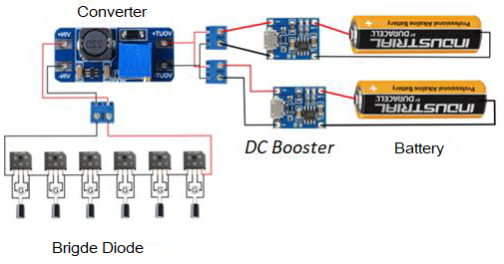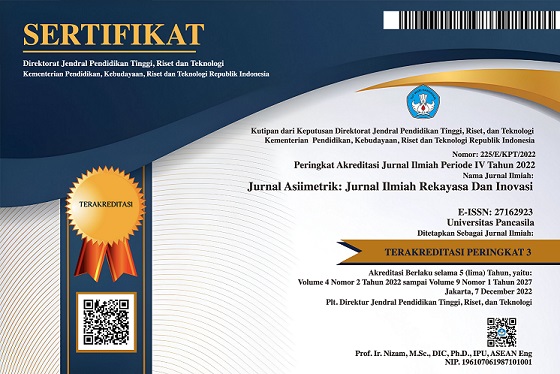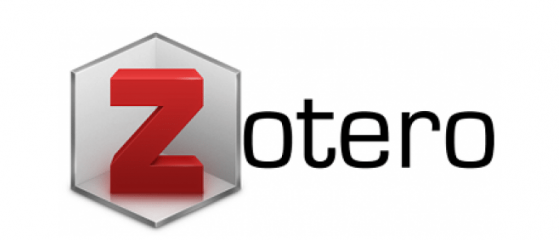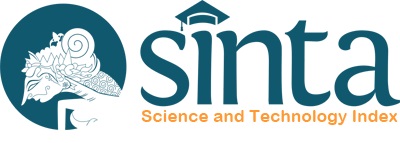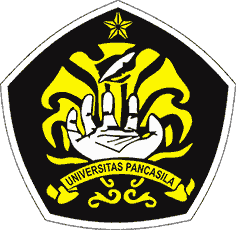Comparative Analysis of a Rectifier Performance in Power Generation Applications
DOI:
https://doi.org/10.35814/asiimetrik.v6i1.5807Keywords:
rectifier, generator set, power grid, performance, comparativeAbstract
Electrical energy's significance is critical to human life, as seen by the rising usage of this resource. Electricity-consuming machinery and technology are developing at an accelerating rate. A substantial electrical power supply is required to achieve these requirements. An effective method to address this issue is to use a generator set powered by an electric motor. This generator necessitates the use of a converter, which serves the purpose of transforming alternating waves (AC) into direct waves (DC), generally referred to as a rectifier. The rectifier's unsatisfactory performance necessitates the need for this research, which seeks to develop and construct a rectifier and subsequently compare its performance utilizing two distinct current sources. Rectifier performance is obtained through the utilization of direct computation and measuring methods. Two sources charge the battery: direct current from the motor and alternating current from the power grid. According to the test results, the converter using an electric power plant source had a higher current value. On the generator, the battery charges up to 13.4 volts in 55 minutes, which is 5 minutes quicker than on the PLN source.
Downloads
References
Achitaev, A. et al. (2024) ‘Life extension of AC-DC converters for hydrogen electrolysers operating as part of offshore wind turbines’, International Journal of Hydrogen Energy, 51, pp. 137–159.
Agarwal, V. (2023) ‘AC-DC converters (rectifiers)’, in J. García (ed.) Encyclopedia of Electrical and Electronic Power Engineering. Oxford: Elsevier, pp. 6–23.
Aryani, D.R. et al. (2022) ‘An improved model-based interlink converter control design in hybrid AC/DC microgrids’, Energy Reports, 8, pp. 520–531.
Atmojo, S.S., Facta, M. and Karnoto, K. (2015) ‘Analisis Perancangan Konverter DC-AC Full Bridge Frekuensi Tinggi Resonan LCC Beban Paralel’, Transient: Jurnal Ilmiah Teknik Elektro, 4(1), pp. 200–207.
Bernal-Perez, S., Añó-Villalba, S. and Blasco-Gimenez, R. (2021) ‘Stability analysis of multi-terminal HVDC with diode rectifier connected off-shore wind power plants’, International Journal of Electrical Power & Energy Systems, 124, p. 106231.
Bhat, A.H. and Agarwal, P. (2008) ‘Three-phase, power quality improvement ac/dc converters’, Electric Power Systems Research, 78(2), pp. 276–289.
Buzzio, C. et al. (2023) ‘A current-source DC-AC converter and control strategy for grid-connected PV applications’, International Journal of Electrical Power & Energy Systems, 154, p. 109399.
Delcy, J.A.N. et al. (2022) ‘A novel symmetrical three level boost DC-AC converter for electric vehicles with reduced switch counts’, Materials Today: Proceedings, 65, pp. 235–241.
Eguchi, K. et al. (2020) ‘Design of an inductor-less step-up ac/dc converter for 0.3 V@1 MHz vibration energy harvesting’, Energy Reports, 6, pp. 159–165.
Eguchi, K. et al. (2021) ‘A multi-input single-output Dickson-type AC/DC converter for vibration energy harvesting’, Energy Reports, 7, pp. 78–83.
Estabragh, M.R., Dastfan, A. and Rahimiyan, M. (2021) ‘Parallel AC-DC interlinking converters in the proposed grid-connected hybrid AC-DC microgrid; planning’, Electric Power Systems Research, 200, p. 107476.
Heidari, S., Hatami, A. and Eskandari, M. (2022) ‘An intelligent capacity management system for interface converter in AC-DC hybrid microgrids’, Applied Energy, 316, p. 119112.
Ingilala, J. and Vairavasundaram, I. (2023) ‘Investigation of high gain DC/DC converter for solar PV applications’, e-Prime - Advances in Electrical Engineering, Electronics and Energy, 5, p. 100264.
Li, Y. et al. (2022) ‘Modeling and control strategy analysis of a hydraulic energy-storage wave energy conversion system’, Renewable Energy, 182, pp. 969–981.
Molaee, Z.S., Rokrok, E. and Doostizadeh, M. (2022) ‘An optimal planning model for AC-DC distribution systems considering the converter lifetime’, International Journal of Electrical Power & Energy Systems, 138, p. 107911.
Nahin, N.I. et al. (2022) ‘Investigating the input power quality of multi-pulse AC-DC power converter fed induction motor drives’, Heliyon, 8(12), p. e11733.
Pollefliet, J. (2018) ‘8 - Controlled Rectifiers’, in J. Pollefliet (ed.) Power Electronics. Oxford: Academic Press, p. 8.1-8.58.
Rashid, M.H. (2018) Power Electronics Handbook. 4th edn. Florida: Butterworth-Heinemann. [Print].
Samiullah, M. et al. (2023) ‘Inherently boosted switched inductor hybrid converter with AC and DC outputs for DC nanogrid applications’, Energy Reports, 10, pp. 360–367. 06.042.
Seyezhai, R. et al. (2022) ‘Simulation and hardware development of AC-DC power converter for Off- board charger of EV’, Materials Today: Proceedings, 62, pp. 1189–1196.
Silveira, J.P.C. et al. (2021) ‘Power management of energy storage system with modified interlinking converters topology in hybrid AC/DC microgrid’, International Journal of Electrical Power & Energy Systems, 130, p. 106880.
Silveira, J.P.C. et al. (2023) ‘Power management with BMS to modified interlinking converter topology in hybrid AC/DC microgrid’, Energy Reports, 9, pp. 1743–1765.
Sun, P. et al. (2022) ‘AC/DC fault handling and expanded DC power flow expression in hybrid multi-converter DC grids’, International Journal of Electrical Power & Energy Systems, 141, p. 107989. s.2022.107989.
Turksoy, O., Yilmaz, U. and Teke, A. (2021) ‘Efficient AC-DC power factor corrected boost converter design for battery charger in electric vehicles’, Energy, 221, p. 119765.
Vule, Y., Siton, Y. and Kuperman, A. (2023) ‘Comprehensive modeling and formulation of split DC link capacitors balancing problem in Three-Phase Three-Level bidirectional AC/DC converters operating with arbitrary power factor’, Alexandria Engineering Journal, 83, pp. 195–211.
Wang, X. et al. (2023) ‘Research on field testing and assessment technology of ocean energy converters’, Ocean Engineering, 285, p. 115539.
Xie, L. et al. (2020) ‘Coordinate control strategy for stability operation of offshore wind farm integrated with Diode-rectifier HVDC’, Global Energy Interconnection, 3(3), pp. 205–216.
Yang, Y., Pian, Y. and Liu, Q. (2019) ‘Design of energy harvester using rotating motion rectifier and its application on bicycle’, Energy, 179, pp. 222–231.
Zhang, H., Corr, L.R. and Ma, T. (2018) ‘Effects of electrical loads containing non-resistive components on piezoelectric energy harvesting’, Mechanical Systems and Signal Processing, 111, pp. 210–221.
Zhu, G. and Gao, D. (2022) ‘Analytical and experimental investigations of optimal load impedance in LCC-compensated inductive power transfer systems’, eTransportation, 11, p. 100153.
